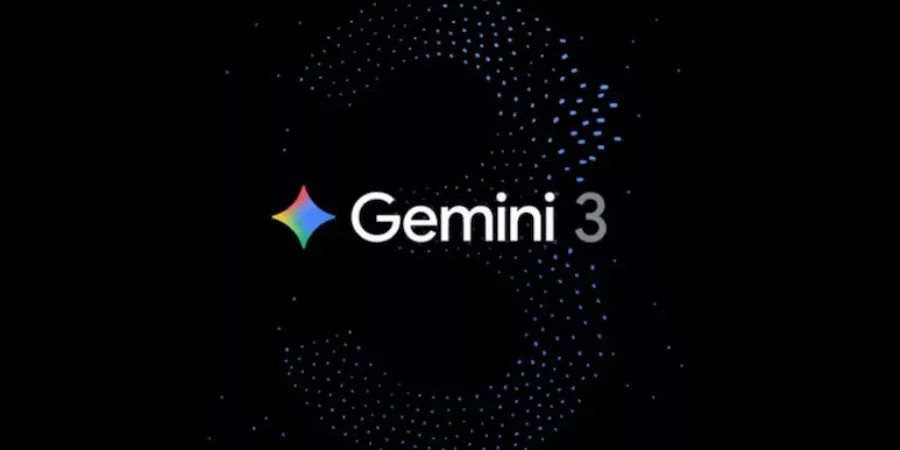Google escalated the artificial intelligence arms race on Tuesday with the launch of Gemini 3, a model that dominates industry benchmarks while achieving immediate integration across the company’s product ecosystem. The release combines technical superiority including a 12.1 percentage-point lead on one of AI’s most challenging tests with unprecedented distribution reach through Google Search, marking the company’s most comprehensive competitive response to OpenAI and Anthropic to date.
Benchmark Dominance: Quantifying the Performance Gap
Gemini 3 secured first position on the LMArena leaderboard with a score of 1,501 points, establishing what CEO Sundar Pichai characterized as “state-of-the-art reasoning” capability. The competitive ranking system, which aggregates human preference evaluations across diverse tasks, positions Gemini 3 ahead of all competing models from OpenAI, Anthropic, Meta, and other major AI laboratories.
Humanity’s Last Exam: The Industry’s Toughest Benchmark On Humanity’s Last Exam, widely recognized as one of the most rigorous AI evaluation frameworks, Gemini 3 achieved 37.5% accuracy without external tool assistance. This result surpasses the previous leader by 12.1 percentage points a margin that represents substantial advancement in complex reasoning capability rather than incremental improvement.
The benchmark’s significance extends beyond numerical scores. Humanity’s Last Exam tests PhD-level reasoning across multiple academic disciplines, requiring models to synthesize information, apply abstract concepts, and generate novel insights under conditions that closely approximate human expert performance. Gemini 3’s performance suggests Google has achieved meaningful progress in developing AI systems capable of graduate-level intellectual work.
Multi-Dimensional Excellence Additional benchmark results reinforce Gemini 3’s comprehensive capability profile. The model scored 91.9% on GPQA Diamond, a graduate-level scientific knowledge assessment covering physics, chemistry, and biology. On MathArena Apex, which evaluates mathematical reasoning and problem-solving, Gemini 3 established a new standard with 23.4% accuracy a domain where AI models historically struggle due to the precision and multi-step logical reasoning required.
Distribution at Scale: 650 Million Users and Growing
Google disclosed that the Gemini app now attracts 650 million monthly active users, while AI Overviews the company’s AI-powered search enhancement feature reaches 2 billion users per month. These distribution metrics underscore a fundamental competitive advantage: Google’s ability to deploy AI innovations to massive user populations through its search engine and mobile operating system ecosystem.
The 650 million monthly active user figure represents significant growth from previously reported metrics and positions Gemini as one of the most widely adopted AI applications globally. While OpenAI’s ChatGPT maintains a weekly user base approaching 800 million, Google’s integrated deployment strategy embedding AI capabilities directly into Search rather than requiring separate application adoption enables reach that competitors cannot easily replicate.
AI Overviews’ 2 billion monthly user count demonstrates how Google’s search dominance translates to AI distribution advantages. Users accessing AI capabilities through familiar search interfaces face lower adoption friction compared to standalone AI applications, accelerating mainstream AI integration into daily information-seeking behaviors.
Search Integration: A Strategic First
For the first time in Google’s AI development history, the company integrated its latest model into Search on launch day. “This is the very first time we’re shipping our latest Gemini model in search,” stated Robby Stein, vice president of product for Google Search. The unprecedented deployment timeline signals internal confidence in Gemini 3’s stability and performance while eliminating the competitive vulnerability created by phased rollouts that allow rivals to maintain feature advantages during transition periods.
AI Mode: Reimagining Search Interaction Gemini 3 powers an enhanced AI Mode featuring generative user interfaces that extend beyond traditional text-based responses. The new interaction paradigm incorporates interactive tools, simulations, and immersive visual layouts that transform search from information retrieval to active exploration and problem-solving.
This architectural evolution positions Google’s search engine as a comprehensive AI application platform rather than a query-response system. Users can manipulate visualizations, adjust simulation parameters, and explore counterfactual scenarios interactions that more closely resemble working with analytical software than conducting traditional web searches.
Google Antigravity: Autonomous Development Platform
Alongside Gemini 3, Google introduced Antigravity, an agentic development platform that redefines the relationship between developers and AI assistance. Unlike traditional code completion tools that suggest next lines or functions, Antigravity enables AI agents to autonomously plan and execute complex software development tasks with direct access to code editors, command-line terminals, and web browsers.
The platform’s autonomous capabilities include code validation agents can test their own implementations, identify failures, and iteratively refine solutions without continuous human oversight. This transformation positions AI as an active development partner rather than a passive assistant, potentially accelerating software engineering productivity while raising new questions about code quality assurance, security vulnerability introduction, and developer skill evolution.
For enterprise software development organizations, Antigravity represents both opportunity and strategic challenge. The productivity gains from autonomous coding agents could substantially reduce development timelines and costs, but integration requires governance frameworks addressing intellectual property attribution, security review protocols, and quality standards for AI-generated code.
Gemini Live Enhancements: Conversational AI Evolution
Google rolled out five significant updates to Gemini Live earlier this month, expanding the assistant’s conversational capabilities beyond standard voice interaction:
Adaptive Speech Control Users can now request faster speech delivery for quick information retrieval or slower pacing for complex explanations requiring careful attention. This adaptive capability recognizes that optimal speech rate varies by context and user preference.
Character Voices and Accents The assistant can adopt specific character voices and regional accents, enhancing personalization and enabling use cases from language learning practice to entertainment applications.
Tailored Language Instruction Enhanced conversational flow supports structured language learning interactions, with the AI adapting complexity and pacing to individual learner progress.
These enhancements reflect Google’s strategy of differentiating through multimodal interaction capabilities that extend beyond text-based AI systems, particularly targeting mobile users where voice interaction provides advantages over keyboard input.
Competitive Dynamics: The $7 Trillion Question
Gemini 3’s launch occurs amid intensifying competition from OpenAI, which released GPT-5.1 on November 13, and Anthropic, whose Claude models have established strong positions in coding and enterprise applications. Sources familiar with internal discussions at both companies indicate concerns that Google’s advances in autonomous coding and multimodal capabilities could threaten their market positions and revenue trajectories.
However, fundamental questions persist about the economic sustainability of accelerating AI development costs. Industry expenditures are projected to approach $7 trillion by 2030, driven by compute infrastructure, training data acquisition, research talent, and operational scaling. Yet current AI system usage remains concentrated in relatively narrow applications: internet search enhancement and coding assistance.
This growing disconnect between investment magnitude and revenue generation has attracted scrutiny from investors, board members, and industry analysts. For AI to justify its projected expenditures, applications must expand beyond productivity tools into transformative use cases generating proportional economic value. Whether Gemini 3’s capabilities enable such expansion remains uncertain.
The competitive intensity also reflects strategic urgency: companies perceive the current period as determining long-term market structure in AI. First-mover advantages, ecosystem lock-in, and developer mindshare may prove difficult to overcome once established, creating pressure to deploy rapidly even when business model validation remains incomplete.
Safety Architecture: Addressing Enterprise Concerns
Google emphasized that Gemini 3 underwent “the most comprehensive set of safety evaluations” of any model in its AI portfolio. The evaluation results demonstrate reduced sycophancy the tendency to agree with user statements regardless of accuracy increased resistance to prompt injection attacks, and improved protection against adversarial attempts to elicit harmful outputs.
Reduced Sycophancy AI models that reflexively agree with users rather than providing accurate information create risks in professional contexts where decisions depend on factual analysis. Gemini 3’s reduced sycophancy suggests improved calibration between confidence and accuracy, a critical capability for enterprise deployment.
Prompt Injection Resistance Prompt injection attacks attempt to override AI safety guardrails through carefully crafted inputs. Enhanced resistance to these attacks reduces vulnerability to malicious use and improves reliability in adversarial environments.
Cybersecurity Protections Improved defenses against attempts to use AI systems for cyberattacks address regulatory and enterprise security concerns, particularly as AI capabilities advance toward autonomous action.
These safety improvements respond to enterprise feedback that reliability, security, and predictability matter as much as capability for production deployments supporting business-critical functions.
Gemini 3 Deep Think: Extended Reasoning Mode
Google announced Gemini 3 Deep Think, an enhanced reasoning variant that achieved 41% on Humanity’s Last Exam and 93.8% on GPQA Diamond. The “Deep Think” designation indicates extended inference computation the model spends additional time analyzing problems before generating responses, trading immediate response speed for improved accuracy on complex reasoning tasks.
This approach mirrors research from multiple AI laboratories suggesting that inference-time computation scaling allowing models more “thinking time” can yield performance gains comparable to increasing model size or training data volume. For users confronting difficult analytical problems, the option to request extended reasoning may prove more valuable than rapid but potentially inaccurate responses.
Gemini 3 Deep Think will initially roll out to AI Ultra subscribers following additional safety testing, reflecting Google’s tiered access strategy that provides premium capabilities to paying customers while maintaining broad free access to standard models.
Strategic Assessment: Google’s Market Position
Gemini 3’s benchmark leadership and immediate Search integration consolidate Google’s competitive position, but several strategic challenges persist:
Revenue Model Maturity While distribution reach is substantial, monetization strategies for AI capabilities beyond premium subscriptions remain underdeveloped. Search advertising revenue models may not translate directly to AI-powered interactions that reduce traditional ad exposure.
Enterprise Adoption Velocity Despite technical superiority, converting benchmarks into enterprise contracts requires addressing procurement concerns around vendor lock-in, data privacy, regulatory compliance, and integration complexity.
Developer Ecosystem Cultivation OpenAI and Anthropic have established strong developer communities and third-party integration ecosystems. Google must accelerate ecosystem development to match competitors’ developer mindshare and application diversity.
Sustainable Differentiation AI model capabilities appear to be converging across major providers, with benchmark leads frequently lasting only months before competitors close gaps. Google must identify sustainable competitive advantages beyond temporary performance superiority.
For enterprise technology leaders, Gemini 3 represents a credible alternative to OpenAI and Anthropic, particularly for organizations already committed to Google Cloud or seeking vendor diversification. The combination of benchmark performance, massive distribution, and integrated product ecosystem provides multiple value propositions depending on specific use case requirements.
The coming quarters will reveal whether Gemini 3’s technical achievements translate to market share gains and revenue growth, or whether the AI market’s competitive dynamics favor first-mover advantages and ecosystem effects over benchmark superiority. Google’s willingness to integrate its latest model into Search on launch day suggests the company recognizes that incremental deployment strategies may be insufficient in a market where competitors iterate rapidly and capture user adoption through aggressive product releases.
The escalating competition benefits enterprises through accelerating capability improvements and competitive pricing pressure, but also creates integration challenges as organizations must evaluate rapidly evolving alternatives while managing production deployments on maturing but not yet stabilized platforms.















